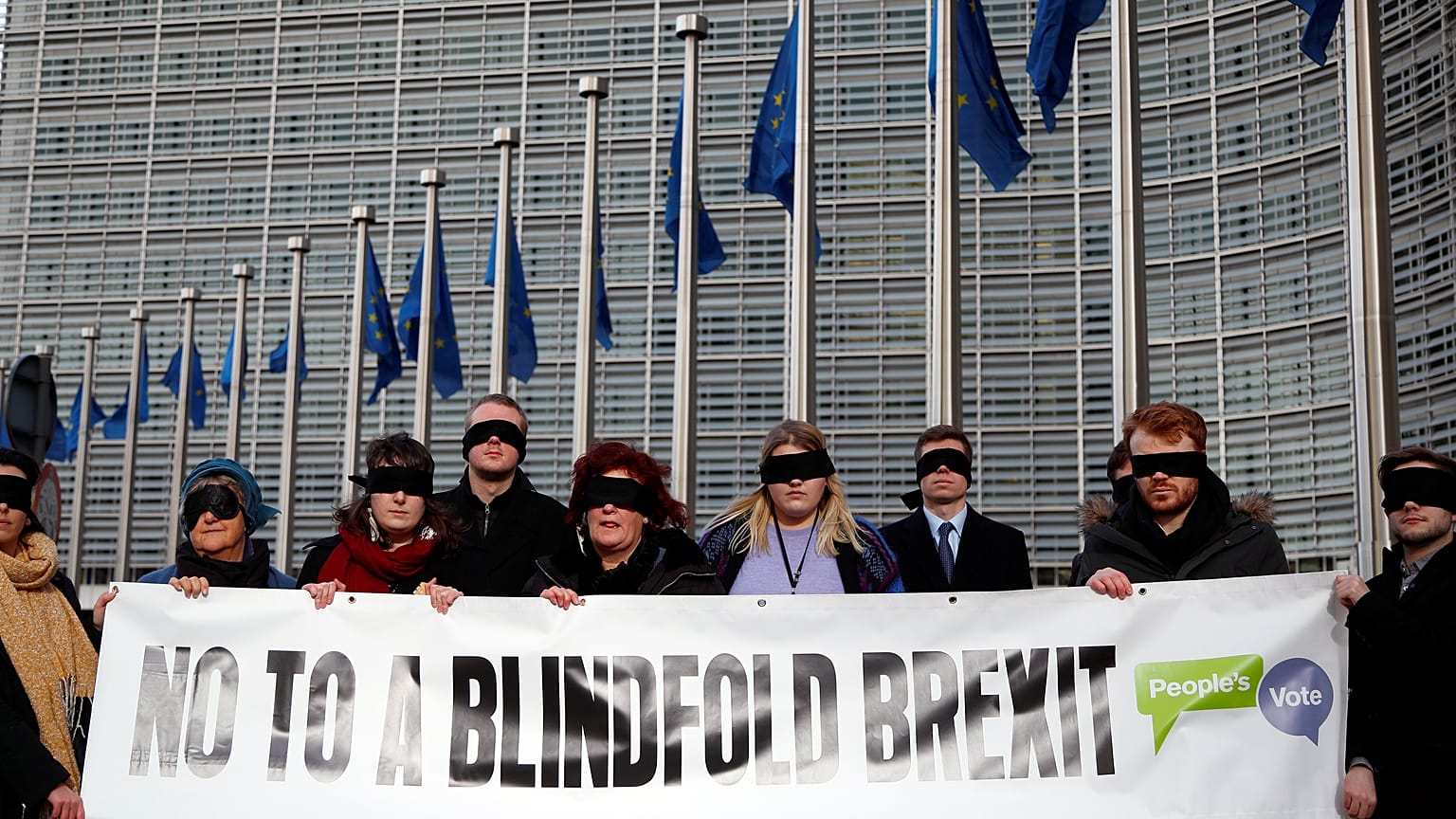In this edition: Brexit tough talk in Brussels, climate marchers get serious and EU leaders on unusual diplomatic territory.
When people are under stress, they sometimes say things to let off steam.
Such a remark then reveals anger, frustration or maybe just calculated provocation:
“I've been wondering what the special place in hell looks like, for those who promoted Brexit, without even a sketch of a plan how to carry it out safely.”
That was of course EU Council President Donald Tusk, speaking to reporters after his meeting with the Irish Prime Minister.
Tusk's blunt language revealed the hostility London may face if it fails to find a compromise with European neighbors whom it will be counting on to maintain good relations in the future.
Reactions in Britain and in the EU were what you would expect from two sides digging deeper and deeper into the trenches.
While Theresa May's spokesman a diplomatically suggested Tusk's remarks were “not helpful”, others took off the gloves.
The hard-line Brexiteer Nigel Farage, for instance, never shy to land a catchy punch if nothing else works, called Tusk an “unelected, arrogant bully”.
Not to be outdone, Guy Verhofstadt, the Brexit coordinator of the European Parliament and long-time Farage nemesis, had this to say about Brexiteers:
“After what they did to Britain, they would even manage to divide hell”.
Well, with friends and allies like these, who needs enemies?
INF Treaty
Which brings us to Russia, actually its predecessor, the Soviet Union.
32 years ago, that country and the United States signed the Intermediate-range Nuclear Forces Treaty, which banned both nations from stationing short- and intermediate-range missiles in Europe.
It was a historic arms control pact that helped end the Cold War and paved the way for more than three decades of peace. Until now.
Over the past week, the successors of Ronald Reagan and Michail Gorbatchev accused each other of violating the treaty and pursuing an aggressive military agenda.
China urged both countries to resolve its differences through dialogue.
And Europe? Do we need to get ready for a new arms race?
We spoke with the Secretary General of NATO.
Unusual Encounters
The Pope, for instance, made a historic trip to the Arabian peninsula, trying to dispel the notion of an inevitable clash between Christianity and Islam.
In Abu Dhabi he presided over the largest mass ever celebrated in that part of the world.
Then, Alexis Tsipras was the first serving Greek Prime Minister to visit the closed Orthodox Christian Seminary of Halki in Turkey, located on an island south of Istanbul, and a source of contention between both countries.
The seminary was closed by the Turkish state almost 50 years ago, and Tsipras voiced hope that it would be re-opened one day to improve bilateral ties.
And finally, Theresa May visited Brussels – not an unusual encounter yet, but if body language is any guide, a pretty awkward one.
She came to try to convince the EU leadership that not all is lost on the Brexit deal.
There you have it: reconciliation, hope and determination – every young person should find inspiration in these powerful values.
Generation Climate
In Belgium students seem to have understood.
They want to be involved, engaged and ultimately persuasive.
Their issue: a better climate protection for a better future.
For weeks and weeks now they take to the streets to remind politicians that they are a force to be reckoned with.
Look ahead
On Monday, the plenary session of the European Parliament kicks off in Strasbourg, roughly 100 days before the European elections.
And Euronews starts its election coverage next week – the motto is “your voice, your choice”.
On Thursday, the British Parliament votes once again on Theresa May's latest Brexit plans.
And on Friday, the Munich Security Conference starts its discussions, the world's largest gathering of its kind, bringing together hundreds of most senior figures from more than 70 countries.














